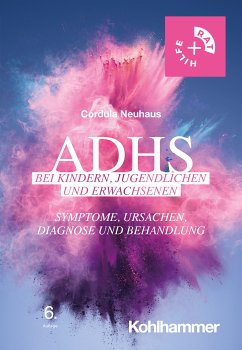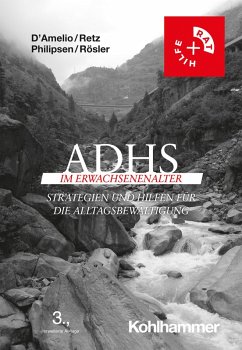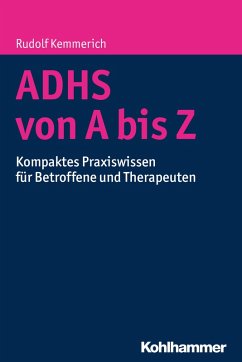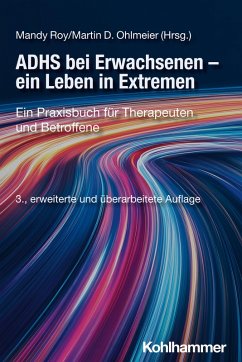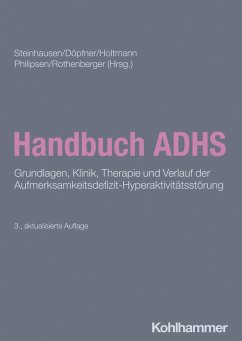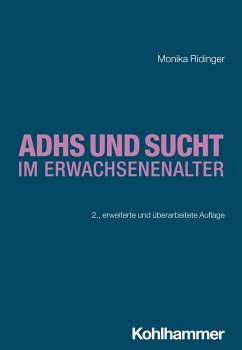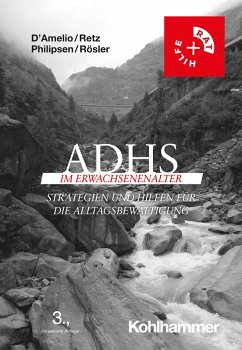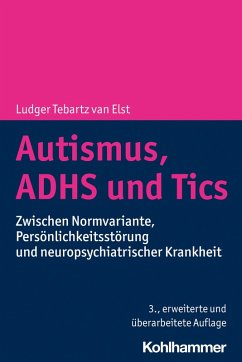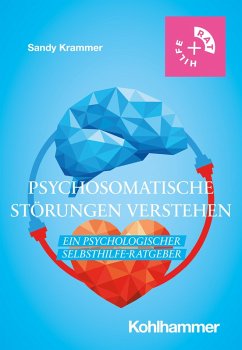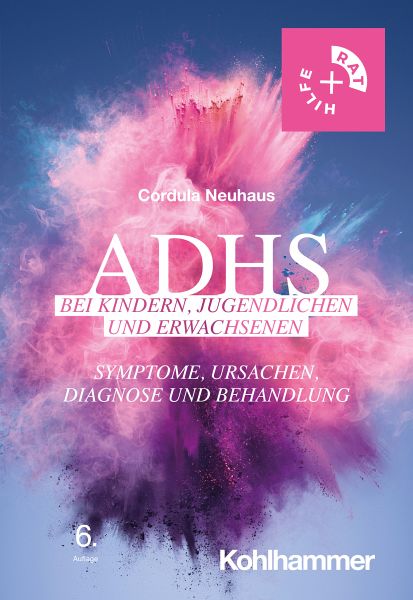
ADHS bei Kindern, Jugendlichen und Erwachsenen (eBook, ePUB)
Symptome, Ursachen, Diagnose und Behandlung
Versandkostenfrei!
Sofort per Download lieferbar
Statt: 29,00 €**
25,99 €
inkl. MwSt. und vom Verlag festgesetzt.
**Preis der gedruckten Ausgabe (Broschiertes Buch)
Alle Infos zum eBook verschenkenWeitere Ausgaben:

PAYBACK Punkte
0 °P sammeln!
Auf Grundlage langjähriger therapeutischer Arbeit mit Betroffenen jeden Alters beschreibt die Autorin anschaulich die Symptome, fundierte neurobiologische Erkenntnisse sowie die evidenzbasierte Diagnosestellung und Therapie von ADHS. Sie zeigt alltagspraktische Strategien auf, wie das Leben von Betroffenen mit dem syndromtypischen Entwicklungsverlauf erleichtert werden kann, um Folgeschäden zu vermeiden. Die 6. Auflage des Ratgebers erläutert darüber hinaus die interdisziplinäre evidenz- und konsensbasierte S3-Leitlinie und den aktuellen Stand zu medikamentösen sowie nicht medikamentöse...
Auf Grundlage langjähriger therapeutischer Arbeit mit Betroffenen jeden Alters beschreibt die Autorin anschaulich die Symptome, fundierte neurobiologische Erkenntnisse sowie die evidenzbasierte Diagnosestellung und Therapie von ADHS. Sie zeigt alltagspraktische Strategien auf, wie das Leben von Betroffenen mit dem syndromtypischen Entwicklungsverlauf erleichtert werden kann, um Folgeschäden zu vermeiden. Die 6. Auflage des Ratgebers erläutert darüber hinaus die interdisziplinäre evidenz- und konsensbasierte S3-Leitlinie und den aktuellen Stand zu medikamentösen sowie nicht medikamentösen Behandlungsmöglichkeiten. Zudem wird auf die Schwierigkeiten von betroffenen Kindern und Jugendlichen im derzeitigen Bildungssystem eingegangen.
Dieser Download kann aus rechtlichen Gründen nur mit Rechnungsadresse in A, B, BG, CY, CZ, D, DK, EW, E, FIN, F, GR, H, IRL, I, LT, L, LR, M, NL, PL, P, R, S, SLO, SK ausgeliefert werden.




